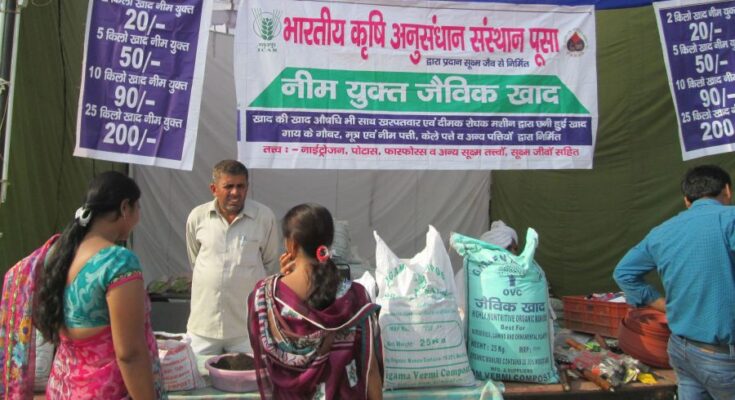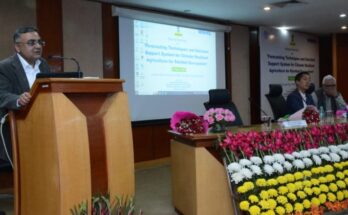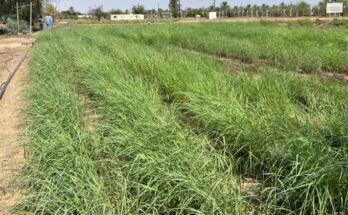The Department of Agriculture and Farmers Welfare is implementing the National Mission for Sustainable Agriculture (NMSA) as one of the missions under the National Action Plan on Climate Change. The activities of the NMSA includes components to minimise the carbon footprint in agriculture.
National Mission for Sustainable Agriculture (NMSA), includes programmatic interventions like Soil Health Card (SHC), Paramparagat Krishi Vikas Yojana (PKVY), Mission Organic Value Chain Development for North Eastern Region (MOVCDNER), Rainfed Area Development (RAD), National Bamboo Mission (NBM) and Sub-mission on Agro-Forestry (SMAF) including Prime Minister Krishi Sinchayee Yojana (PMKSY).
The mission aims to evolve and implement strategies to make Indian agriculture more resilient to the changing climate. The progress of the 10 identified deliverables namely area under organic farming; production of bio-fertilisers; precision irrigation; system of rice intensification (SRI) and direct-seeded rice from transplantation; crop diversification; additional area under plantation in arable land; climate-resilient varieties(CRV) identified/ released; identification of genotypes of crops with enhanced CO2 fixation potential with less water consumption and nutrients; climate-resilient genotypes with greater adaptation to drought, flood, salinity and high temperature; coverage of milch animals under ration balancing programme; establishment of bypass protein feed making unit are being monitored regularly.
You may also like to read: 5 Govt schemes, promoting organic farming in India
Indian Council of Agricultural Research (ICAR) has been running a flagship network project ‘National Innovations in Climate Resilient Agriculture’ (NICRA) in 2011. Under this project, several climate-resilient technologies that can minimise carbon footprint in the agriculture sector are identified. These technologies include direct-seeded rice (DSR), system of rice intensification (SRI), efficient irrigation systems such as drip and sprinkler irrigation, zero-till planting of wheat, soil test based fertiliser application and leaf colour chart (LCC), soil health card based nutrient application, crop residue recycling and avoiding crop residue burning, green manuring, resilient inter-cropping systems, improved fodder systems and community fodder bank, agroforestry systems and integrated farming systems. For wider adoption among the farming community, large scale demonstrations of these low carbon technologies are being taken up in 151 climatically vulnerable districts across the country.
This information was given by Union Minister of Agriculture and Farmers Welfare, Narendra Singh Tomar in a written reply in Lok Sabha Tuesday.





